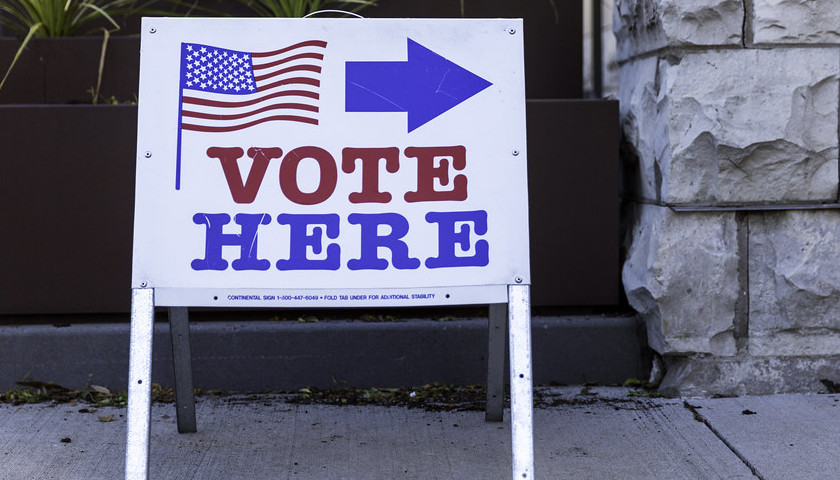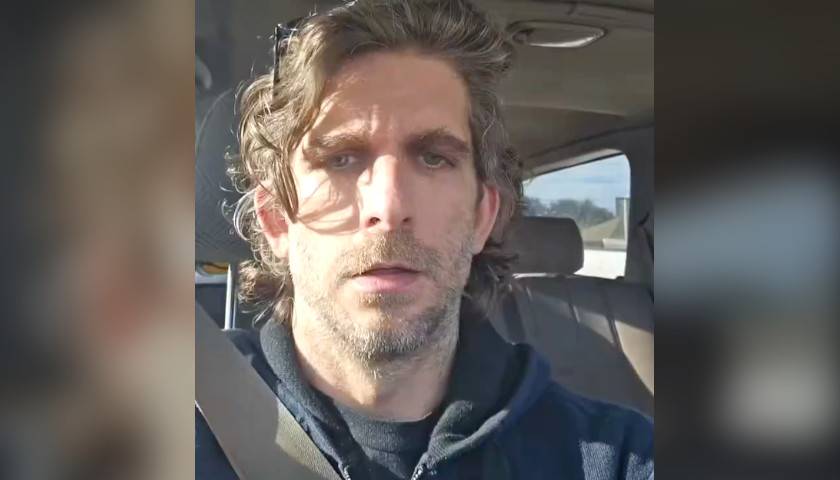by Julie Kelly
In a lawsuit filed Monday before the U.S. Supreme Court, the state of Texas accuses four states currently “won” by Joe Biden of using the COVID-19 pandemic as an excuse to violate the Electors Clause and the 14th Amendment. Texas Attorney General Ken Paxton is suing Pennsylvania, Georgia, Michigan, and Wisconsin for usurping the sole authority of state legislatures to create election law and charges that millions of absentee ballots were unlawfully processed by local election officials.
“They accomplished these statutory revisions through executive fiat or friendly lawsuits, thereby weakening ballot integrity,” the plaintiffs wrote. “Finally, these same government officials flooded the Defendants States with millions of ballots to be sent through the mails, or placed in drop boxes, with little or no chain of custody and, at the same time, weakened the strongest security measures protecting the integrity of the vote—signature verification and witness requirements.”
The filing asks the court to extend the December 14, 2020 deadline to certify each state’s electoral slate noting that the only date “mandated by the Constitution” is January 20, 2021.
The bill of particulars against the four rogue states is damning. Unelected bureaucrats such as Pennsylvania Secretary of State Kathy Boockvar and members of the Wisconsin Election Commission changed rules at the last minute and without authority. Local election workers flagrantly violated numerous state election laws; rejection rates for mail-in ballots were far lower than in the primary elections despite the unprecedented volume of absentee voting; and the statistical probability of Joe Biden’s victory in those four states as of 3 a.m. on November 4, 2020, given Trump’s substantial lead, is “less than one in a quadrillion.”
A few quick highlights:
Pennsylvania: Boockvar, who was appointed by Governor Tom Wolf, a Democrat, in 2019, unilaterally and “unconstitutionally” ditched the state’s signature verification statute and extended the deadline for receipt of mail-in ballots, including envelopes without a postmark, until three days past Election Day. As I explained in this column, Pennsylvania election law expressly prohibits the processing of mail-in ballots until 7 a.m. on Election Day; that rule was clearly violated. Pennsylvania also does not permit ballots to be “cured,” another law local election officials ignored. “This number of constitutionally tainted ballots far exceeds the approximately 81,660 votes separating the candidates.”
Georgia: Paxton, et al claim that the number of unlawfully handled mail-in ballots in the Peach State “far exceeds the margin of victory” between Biden and Trump. (Biden is purportedly ahead by fewer than 13,000 votes.) Republican Secretary of State Brad Raffensperger—who penned an op-ed in Monday’s Wall Street Journal claiming that the 2020 presidential election was the “most secure in history” and accusing President Trump of running “the Stacey Abrams playbook” by refusing to concede—made “unconstitutional change[s]” to Georgia election law. In March 2020, Raffensperger and the state’s Democratic Party reached a settlement that made it much harder to challenge signatures on absentee ballots: That change was not approved by the state legislature.
Raffensperger’s self-aggrandizing commentary notwithstanding, the rejection rate for mail-in ballots this year is beyond implausible. Only 4,786 absentee ballots out of more than 1.3 million cast were rejected in 2020 or .37 percent of the total. In 2016, however, 13,677 mail-in votes were rejected out of 213,033 ballots or 6.42 percent. Nearly three times as many mail-in votes were rejected four years ago even though more than six times as many mail-in votes were cast in 2020.
Michigan: In May 2020, the Democratic Secretary of State announced her office would send, without any request necessary, mail-in ballot applications to all 7.7 million registered Michigan voters in direct contravention of state election law. The legislature only authorized local election clerks, not Secretary of State Jocelyn Benson, to send absentee ballot applications. “Secretary Benson lacked the authority to distribute a single absentee voter application—much less the millions of absentee ballot applications Secretary Benson chose to flood across Michigan.”
Election workers in Wayne County, home of Detroit, broke several election laws. (The TCF Center was the only counting facility for city of Detroit ballots.) Signature verification requirements were ignored, observers were kept far away from the process or denied access altogether, and workers ran “the same ballot through the tabulators multiple times.” Biden’s margin of “victory” in Michigan is around 146,000 votes.
Wisconsin: Election officials in the Badger State broke several state laws; as I wrote here, county election workers doctored certification envelopes in an effort to illegally “cure” mail-in ballots, a practice not permitted under state law. Like in Pennsylvania, mail-in ballots were inspected before Election Day against state election law. Over 500 unmanned “drop boxes,” primarily in the state’s five largest cities, were used in the election, a violation of state law that requires absentee ballots be mailed or delivered in person.
Democrats exploited the COVID-19 crisis by encouraging voters to use the “indefinitely confined” rule to circumvent absentee ballot requirements. Nearly 216,000 Wisconsin voters used the exemption to vote in the 2020 election, a nearly four-fold increase over 2016.
The suit asks the court to declare that the four states “administered the 2020 presidential election in violation of the Electors Clause and the Fourteenth Amendment” and essentially nullify any presidential electors appointed in those states.
Things are getting interesting.
– – –
Julie Kelly is a political commentator and senior contributor to American Greatness. She is the author of Disloyal Opposition: How the NeverTrump Right Tried―And Failed―To Take Down the President Her past work can be found at The Federalist and National Review. She also has been featured in the Wall Street Journal, The Hill, Chicago Tribune, Forbes, and Genetic Literacy Project. After college graduation, she served as a policy and communications consultant for several Republican candidates and elected officials in suburban Chicago. She also volunteered for her local GOP organization. After staying home for more than 10 years to raise her two daughters, Julie began teaching cooking classes out of her home. She then started writing about food policy, agriculture, and biotechnology, as well as climate change and other scientific issues. She graduated from Eastern Illinois University in 1990 with a degree in communications and minor degrees in political science and journalism. Julie lives in suburban Chicago with her husband, two daughters, and (unfortunately) three dogs.
Photo “Vote Here Sign” by Lorie Shaull. CC BY-SA 2.0.




